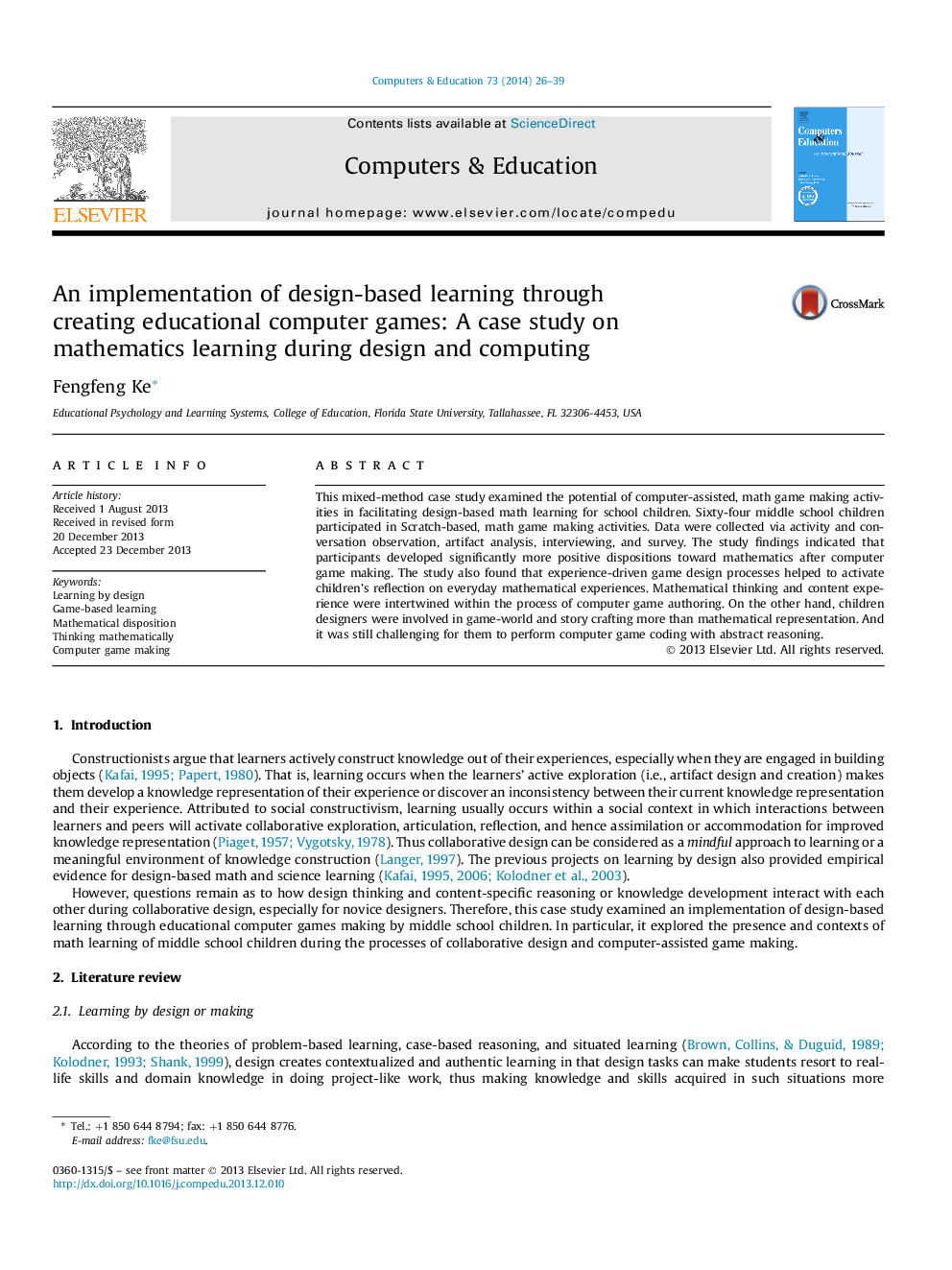| Article ID | Journal | Published Year | Pages | File Type |
|---|---|---|---|---|
| 348368 | Computers & Education | 2014 | 14 Pages |
•Computer educational game making using Scratch by middle school students.•Developed significantly more positive dispositions toward mathematics.•Activated mathematical experience and thinking.•Mergence and dissection of learning, design, and computing.
This mixed-method case study examined the potential of computer-assisted, math game making activities in facilitating design-based math learning for school children. Sixty-four middle school children participated in Scratch-based, math game making activities. Data were collected via activity and conversation observation, artifact analysis, interviewing, and survey. The study findings indicated that participants developed significantly more positive dispositions toward mathematics after computer game making. The study also found that experience-driven game design processes helped to activate children's reflection on everyday mathematical experiences. Mathematical thinking and content experience were intertwined within the process of computer game authoring. On the other hand, children designers were involved in game-world and story crafting more than mathematical representation. And it was still challenging for them to perform computer game coding with abstract reasoning.
